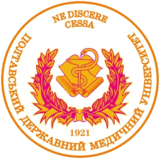Будь ласка, використовуйте цей ідентифікатор, щоб цитувати або посилатися на цей матеріал:
http://repository.pdmu.edu.ua/handle/123456789/18560Повний запис метаданих
| Поле DC | Значення | Мова |
|---|---|---|
| dc.contributor.author | Boiko, D. I. | - |
| dc.contributor.author | Skrypnikov, A. M. | - |
| dc.contributor.author | Shkodina, A. D. | - |
| dc.contributor.author | Hasan, M. M. | - |
| dc.contributor.author | Ashraf, G. M. | - |
| dc.contributor.author | Rahman, M. H. | - |
| dc.contributor.author | Бойко, Дмитро Іванович | - |
| dc.contributor.author | Скрипніков, Андрій Миколайович | - |
| dc.contributor.author | Шкодіна, Анастасія Дмитрівна | - |
| dc.date.accessioned | 2022-06-09T06:30:22Z | - |
| dc.date.available | 2022-06-09T06:30:22Z | - |
| dc.date.issued | 2022 | - |
| dc.identifier.citation | Circadian rhythm disorder and anxiety as mental health complications in post‑COVID‑19 / D. I. Boiko, A. M. Skrypnikov, A. D. Shkodina [et al.] // Environmental science and pollution research. – 2022. – Vol. 29. – P. 28062–28069. | uk_UA |
| dc.identifier.uri | http://repository.pdmu.edu.ua/handle/123456789/18560 | - |
| dc.description.abstract | In 2020, the world gained dramatic experience of the development of the 2019 coronavirus disease pandemic (COVID-19) caused by severe acute respiratory syndrome 2 (SARS-CoV-2). Recent researches notice an increasing prevalence of anxiety and circadian rhythm disorders during COVID-19 pandemic. The aim of the study was describing clinical features of circadian rhythm disorders and the level of anxiety in persons who have had COVID-19. We have conducted a cohort retrospective study that included 278 patients who were divided into 2 study groups according to medical history: group 1 includes patients with a history of COVID-19; group 2 consists of patients who did not have clinically confrmed COVID-19 and are therefore considered not to have had this disease. To objectify circadian rhythm disorders, they were verifed in accordance with the criteria of the International Classifcation of Sleep Disorders-3. The level of anxiety was assessed by the State-Trait Anxiety Inventory. The most common circadian rhythm disorders were sleep phase shifts. We found that COVID-19 in the anamnesis caused a greater predisposition of patients to the development of circadian rhythm disorders, in particular delayed sleep phase disorder. In addition, it was found that after COVID-19 patients have increased levels of both trait and state anxiety. In our study, it was the frst time that relationships between post-COVID-19 anxiety and circadian rhythm disorders had been indicated. Circadian rhythm disorders are associated with increased trait and state anxiety, which may indicate additional ways to correct post-COVID mental disorders and their comorbidity with sleep disorders. | uk_UA |
| dc.language.iso | en | uk_UA |
| dc.publisher | Springer | uk_UA |
| dc.subject | COVID-19 | uk_UA |
| dc.subject | сircadian rhythm | uk_UA |
| dc.subject | anxiety | uk_UA |
| dc.subject | mood disorders | uk_UA |
| dc.subject | sleep disorders | uk_UA |
| dc.subject | cohort retrospective study | uk_UA |
| dc.title | Circadian rhythm disorder and anxiety as mental health complications in post‑COVID‑19 | uk_UA |
| dc.type | Article | uk_UA |
| dc.identifier.doi | 10.1007/s11356-021-18384-4 | - |
| Розташовується у зібраннях: | Наукові праці. Кафедра нервових хвороб Наукові праці. Кафедра психіатрії, наркології та медичної психології | |
Файли цього матеріалу:
| Файл | Опис | Розмір | Формат | |
|---|---|---|---|---|
| Circadian_rhythm_disorder_and_anxiety.pdf | 672,1 kB | Adobe PDF | Переглянути/Відкрити |
Усі матеріали в архіві електронних ресурсів захищені авторським правом, всі права збережені.



